-
 Bitcoin
Bitcoin $106,754.6083
1.33% -
 Ethereum
Ethereum $2,625.8249
3.80% -
 Tether USDt
Tether USDt $1.0001
-0.03% -
 XRP
XRP $2.1891
1.67% -
 BNB
BNB $654.5220
0.66% -
 Solana
Solana $156.9428
7.28% -
 USDC
USDC $0.9998
0.00% -
 Dogecoin
Dogecoin $0.1780
1.14% -
 TRON
TRON $0.2706
-0.16% -
 Cardano
Cardano $0.6470
2.77% -
 Hyperliquid
Hyperliquid $44.6467
10.24% -
 Sui
Sui $3.1128
3.86% -
 Bitcoin Cash
Bitcoin Cash $455.7646
3.00% -
 Chainlink
Chainlink $13.6858
4.08% -
 UNUS SED LEO
UNUS SED LEO $9.2682
0.21% -
 Avalanche
Avalanche $19.7433
3.79% -
 Stellar
Stellar $0.2616
1.64% -
 Toncoin
Toncoin $3.0222
2.19% -
 Shiba Inu
Shiba Inu $0.0...01220
1.49% -
 Hedera
Hedera $0.1580
2.75% -
 Litecoin
Litecoin $87.4964
2.29% -
 Polkadot
Polkadot $3.8958
3.05% -
 Ethena USDe
Ethena USDe $1.0000
-0.04% -
 Monero
Monero $317.2263
0.26% -
 Bitget Token
Bitget Token $4.5985
1.68% -
 Dai
Dai $0.9999
0.00% -
 Pepe
Pepe $0.0...01140
2.44% -
 Uniswap
Uniswap $7.6065
5.29% -
 Pi
Pi $0.6042
-2.00% -
 Aave
Aave $289.6343
6.02%
How does Exodus ensure the security of user assets?
Exodus secures user assets via cold storage, robust encryption, and regular security audits, but user responsibility, especially safeguarding seed phrases, is paramount. No system is impenetrable; understanding inherent risks is key.
Mar 12, 2025 at 06:50 am

Key Points:
- Exodus employs a multi-layered security approach combining offline storage (cold storage), robust encryption, and regular security audits.
- User responsibility plays a crucial role; securely managing your seed phrase is paramount to protecting your assets.
- Exodus prioritizes transparency and openly communicates about security incidents and improvements.
- While Exodus strives for high security, no system is impenetrable; understanding inherent risks is vital.
- The platform actively engages with the security community to enhance its defenses.
How Does Exodus Ensure the Security of User Assets?
Exodus, a popular cryptocurrency wallet, prioritizes the security of user assets through a multifaceted strategy. This involves several key components working together to minimize vulnerabilities and protect user funds. Understanding these components is crucial for users to effectively manage their own security risks.
One of the primary methods Exodus utilizes is cold storage. A significant portion of user funds are stored offline, meaning they are not connected to the internet and therefore less susceptible to hacking attempts. This offline storage acts as a crucial barrier against many common online threats.
In addition to cold storage, Exodus employs robust encryption techniques to protect user data both in transit and at rest. This encryption ensures that even if a hacker were to gain unauthorized access, they would be unable to decipher the sensitive information stored within the wallet. The strength of this encryption is regularly reviewed and updated to meet evolving security standards.
Regular security audits are a cornerstone of Exodus' security practices. Independent security experts regularly assess the platform's code and infrastructure for vulnerabilities. This proactive approach helps identify and rectify potential weaknesses before they can be exploited by malicious actors. The findings of these audits are often publicly shared, demonstrating a commitment to transparency.
However, it's crucial to remember that the security of your Exodus wallet is not solely dependent on the platform itself. User responsibility is paramount. The security of your assets hinges on the secure management of your seed phrase (or recovery phrase). This phrase is the key to accessing your cryptocurrency; its compromise would grant access to your funds. Exodus emphasizes the importance of keeping this phrase safe and offline.
Exodus also actively engages with the broader security community. By collaborating with security researchers and developers, the platform benefits from a wider range of expertise and perspectives, leading to continuous improvements in its security measures. This collaboration allows for quicker identification and resolution of potential vulnerabilities.
Furthermore, Exodus maintains a transparent communication policy. They openly disclose any security incidents or vulnerabilities discovered, along with the steps taken to address them. This openness fosters trust and allows users to stay informed about potential risks.
Understanding the Limitations
While Exodus implements robust security measures, it's important to acknowledge that no system is entirely impenetrable. Cryptocurrency security is an ongoing arms race between security professionals and malicious actors. Even with the best practices in place, there's always a residual risk.
Users should remain vigilant and aware of potential phishing scams and other social engineering attacks. These attacks often target users directly, attempting to trick them into revealing their seed phrases or other sensitive information. Staying informed about these threats is crucial for maintaining the security of your assets.
The security of your Exodus wallet also depends on the security of your device. If your device is compromised through malware or other means, your wallet could be vulnerable even with strong encryption in place. Regular software updates and the use of strong passwords are essential to mitigating this risk.
Frequently Asked Questions:
Q: What happens if my Exodus wallet is lost or stolen?
A: If your device is lost or stolen, the security of your assets depends entirely on whether your seed phrase was also compromised. If you kept your seed phrase secure and offline, you can recover your wallet on a new device using that phrase. If your seed phrase was compromised, your funds are at risk.
Q: How often does Exodus conduct security audits?
A: Exodus doesn't publicly specify the exact frequency of their security audits, but they state that they are conducted regularly by independent security experts. Details about specific audits are often not publicly released for security reasons.
Q: Does Exodus insure user funds against theft or loss?
A: Exodus does not provide insurance for user funds. The responsibility for securing your assets lies primarily with the user. The platform provides the tools and security measures, but the ultimate protection relies on secure user practices.
Q: What types of encryption does Exodus use?
A: Exodus utilizes a combination of encryption methods to protect user data, but the specifics are not publicly detailed due to security considerations. This information is generally considered proprietary to protect against potential vulnerabilities.
Q: Can I use Exodus on multiple devices?
A: Yes, you can access your Exodus wallet on multiple devices, but be mindful that each device will require your seed phrase for access. Remember that securely storing your seed phrase is crucial regardless of how many devices you use. Any compromise of your seed phrase risks the loss of your funds.
Q: What should I do if I suspect a security breach of my Exodus wallet?
A: Immediately change your password and contact Exodus support. If you suspect your seed phrase has been compromised, act quickly to secure your funds as much as possible, and consider contacting law enforcement if applicable. Regularly monitor your wallet activity for any unauthorized transactions.
Disclaimer:info@kdj.com
The information provided is not trading advice. kdj.com does not assume any responsibility for any investments made based on the information provided in this article. Cryptocurrencies are highly volatile and it is highly recommended that you invest with caution after thorough research!
If you believe that the content used on this website infringes your copyright, please contact us immediately (info@kdj.com) and we will delete it promptly.
- 2025-W Uncirculated American Gold Eagle and Dr. Vera Rubin Quarter Mark New Products
- 2025-06-13 06:25:13
- Ruvi AI (RVU) Leverages Blockchain and Artificial Intelligence to Disrupt Marketing, Entertainment, and Finance
- 2025-06-13 07:05:12
- H100 Group AB Raises 101 Million SEK (Approximately $10.6 Million) to Bolster Bitcoin Reserves
- 2025-06-13 06:25:13
- Galaxy Digital CEO Mike Novogratz Says Bitcoin Will Replace Gold and Go to $1,000,000
- 2025-06-13 06:45:13
- Trust Wallet Token (TWT) Price Drops 5.7% as RWA Integration Plans Ignite Excitement
- 2025-06-13 06:45:13
- Ethereum (ETH) Is in the Second Phase of a Three-Stage Market Cycle
- 2025-06-13 07:25:13
Related knowledge
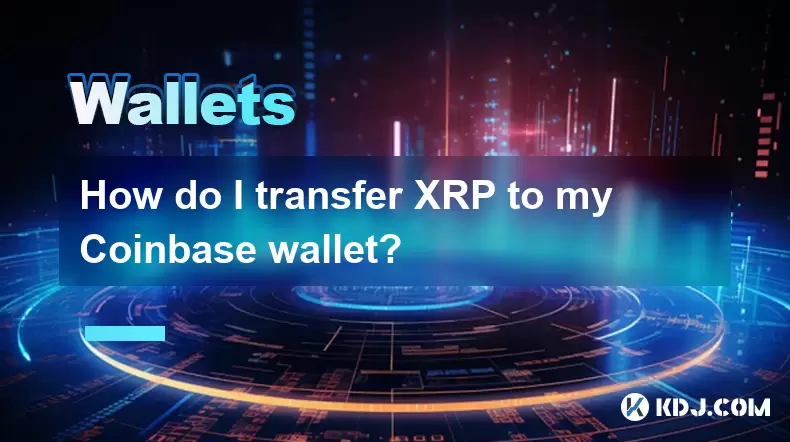
How do I transfer XRP to my Coinbase wallet?
Jun 16,2025 at 04:57pm
Understanding the Basics of XRP and Coinbase CompatibilityBefore initiating any transfer, it’s essential to confirm whether Coinbase supports XRP. As of recent updates, Coinbase has resumed offering XRP trading services on its platform after a period of uncertainty due to legal issues involving Ripple Labs. However, availability may vary depending on yo...

How do I deposit BNB into my Trust Wallet?
Jun 15,2025 at 03:56pm
Understanding BNB and Trust Wallet CompatibilityBefore initiating a deposit, it’s crucial to understand what BNB is and how it interacts with Trust Wallet. BNB (Binance Coin) is a utility token created by the Binance exchange. It can be used for paying transaction fees, participating in token sales, and more. Trust Wallet, on the other hand, is a mobile...
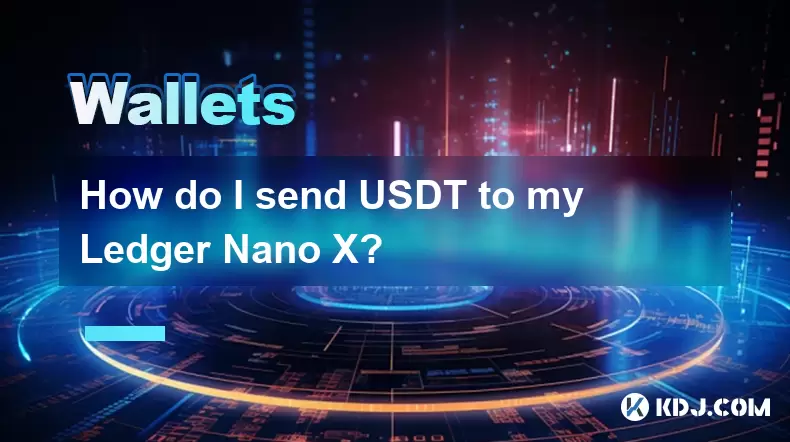
How do I send USDT to my Ledger Nano X?
Jun 15,2025 at 06:28am
What is USDT and Why Use Ledger Nano X?USDT, also known as Tether, is one of the most widely used stablecoins in the cryptocurrency ecosystem. It operates on various blockchain networks such as Ethereum (ERC-20), Tron (TRC-20), and others, offering users a digital asset pegged 1:1 to the US dollar. When it comes to storing USDT securely, hardware wallet...
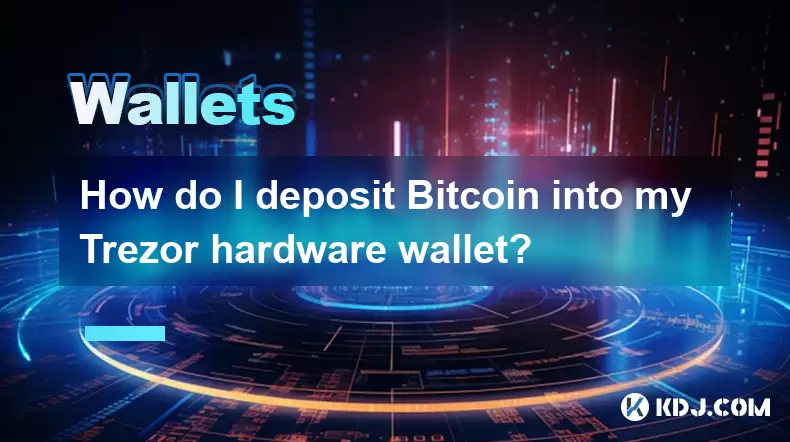
How do I deposit Bitcoin into my Trezor hardware wallet?
Jun 14,2025 at 12:29pm
What is a Trezor Hardware Wallet?A Trezor hardware wallet is a secure device designed to store cryptocurrencies offline, protecting them from online threats. Unlike software wallets, which are vulnerable to hacking and malware, Trezor stores private keys on the physical device itself. This ensures that transactions can only be approved by physically int...
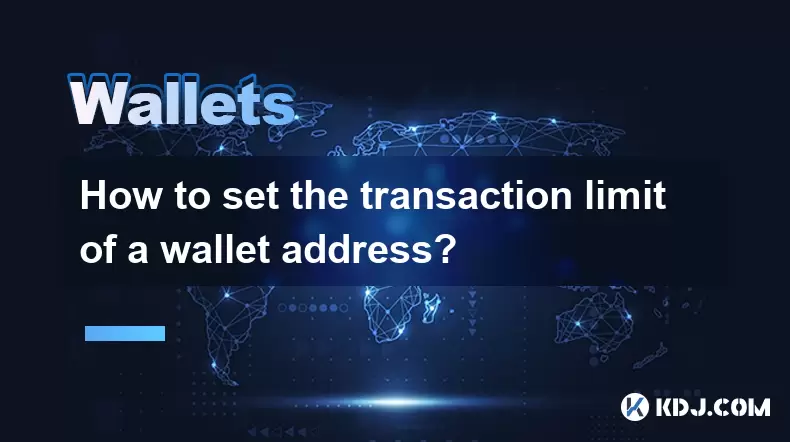
How to set the transaction limit of a wallet address?
Jun 16,2025 at 04:08am
Understanding the Concept of Transaction Limits in Cryptocurrency WalletsIn the cryptocurrency ecosystem, transaction limits refer to predefined restrictions placed on the amount of digital assets that can be sent or received by a wallet address within a specified timeframe. These limits are typically enforced by platforms such as exchanges, custodial w...
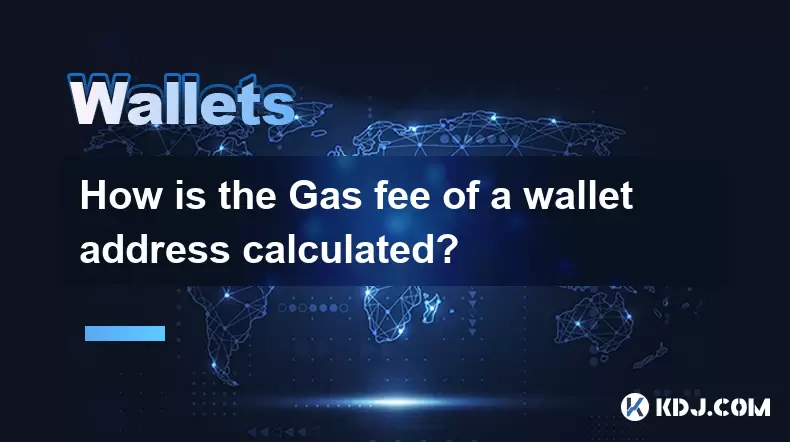
How is the Gas fee of a wallet address calculated?
Jun 14,2025 at 07:57pm
Understanding the Basics of Gas Fees in Blockchain TransactionsIn the cryptocurrency ecosystem, particularly within Ethereum-based networks, a Gas fee is an essential component of executing transactions or smart contract operations. The Gas fee serves as compensation for miners or validators who process and confirm transactions on the blockchain. It is ...

How do I transfer XRP to my Coinbase wallet?
Jun 16,2025 at 04:57pm
Understanding the Basics of XRP and Coinbase CompatibilityBefore initiating any transfer, it’s essential to confirm whether Coinbase supports XRP. As of recent updates, Coinbase has resumed offering XRP trading services on its platform after a period of uncertainty due to legal issues involving Ripple Labs. However, availability may vary depending on yo...

How do I deposit BNB into my Trust Wallet?
Jun 15,2025 at 03:56pm
Understanding BNB and Trust Wallet CompatibilityBefore initiating a deposit, it’s crucial to understand what BNB is and how it interacts with Trust Wallet. BNB (Binance Coin) is a utility token created by the Binance exchange. It can be used for paying transaction fees, participating in token sales, and more. Trust Wallet, on the other hand, is a mobile...

How do I send USDT to my Ledger Nano X?
Jun 15,2025 at 06:28am
What is USDT and Why Use Ledger Nano X?USDT, also known as Tether, is one of the most widely used stablecoins in the cryptocurrency ecosystem. It operates on various blockchain networks such as Ethereum (ERC-20), Tron (TRC-20), and others, offering users a digital asset pegged 1:1 to the US dollar. When it comes to storing USDT securely, hardware wallet...

How do I deposit Bitcoin into my Trezor hardware wallet?
Jun 14,2025 at 12:29pm
What is a Trezor Hardware Wallet?A Trezor hardware wallet is a secure device designed to store cryptocurrencies offline, protecting them from online threats. Unlike software wallets, which are vulnerable to hacking and malware, Trezor stores private keys on the physical device itself. This ensures that transactions can only be approved by physically int...

How to set the transaction limit of a wallet address?
Jun 16,2025 at 04:08am
Understanding the Concept of Transaction Limits in Cryptocurrency WalletsIn the cryptocurrency ecosystem, transaction limits refer to predefined restrictions placed on the amount of digital assets that can be sent or received by a wallet address within a specified timeframe. These limits are typically enforced by platforms such as exchanges, custodial w...

How is the Gas fee of a wallet address calculated?
Jun 14,2025 at 07:57pm
Understanding the Basics of Gas Fees in Blockchain TransactionsIn the cryptocurrency ecosystem, particularly within Ethereum-based networks, a Gas fee is an essential component of executing transactions or smart contract operations. The Gas fee serves as compensation for miners or validators who process and confirm transactions on the blockchain. It is ...
See all articles

























































































